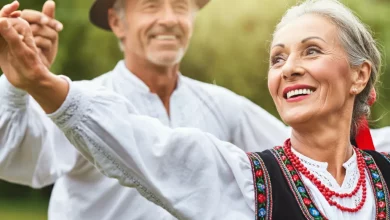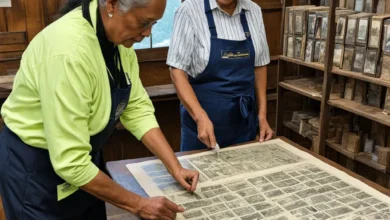Why Community Engagement Is Key to Aging Gracefully

Have you ever wondered what the secret is to aging gracefully? While a healthy diet and regular exercise are crucial, there’s another vital ingredient that often goes overlooked: community engagement.
Did you know that seniors who stay socially active are 50% less likely to develop dementia? This fascinating statistic highlights just how important social connections are for our well-being as we age.
In this post, we’ll explore why community engagement for seniors is not just a nice-to-have, but a must-have for maintaining physical, mental, and emotional health in our later years.
The Benefits of Community Engagement for Older Adults
1. Social Connection and Reduced Isolation
Feeling lonely isn’t just sad – it’s bad for your health. Social isolation in older adults can be as harmful as smoking 15 cigarettes a day! But here’s the good news: getting involved in your community can help fight loneliness.
Here are some fun ways to connect with others:
- Join a book club
- Attend local festivals
- Participate in group fitness classes
- Volunteer at a community garden
2. Mental Stimulation and Cognitive Health
Keeping your brain active is like giving it a workout. When you engage with your community, you’re exercising your mind in ways that can help keep it sharp.
Some mentally stimulating community activities include:
- Taking a local history class
- Joining a chess club
- Participating in community theater
3. Physical Health and Active Lifestyle
Staying physically active is crucial for aging gracefully. Community involvement can motivate you to get moving and stay healthy.
Try these community-based physical activities:
- Walking groups in local parks
- Senior-friendly yoga classes
- Community pool water aerobics
- Ballroom dancing lessons
Ways to Engage with Your Community as You Age
1. Volunteer Opportunities
Volunteering isn’t just good for your community – it’s great for you too! Seniors who volunteer report feeling happier and healthier.
Here are some rewarding volunteer roles perfect for older adults:
- Mentor a child at a local school
- Help at an animal shelter
- Assist at a food bank
- Guide visitors at a museum
To find local opportunities, check your city’s website or visit VolunteerMatch.org.
2. Joining Local Clubs and Organizations
Whatever your interests, there’s likely a club for it! Joining a club is a fun way to meet like-minded people and pursue your passions.
Popular clubs for seniors include:
- Garden clubs
- Book clubs
- Photography groups
- Craft circles
To find clubs near you, look in local newspapers or community center bulletin boards.
3. Participating in Community Events and Classes
Lifelong learning keeps your mind sharp and your days interesting. Many communities offer a variety of events and classes for seniors.
Examples of educational and fun activities include:
- Cooking classes
- Language lessons
- Art workshops
- Local history tours
These activities not only teach you new skills but also connect you with others who share your interests.
Overcoming Barriers to Community Engagement
1. Transportation Challenges
Getting around can be tough for some seniors, but don’t let that stop you! Here are some solutions:
- Use senior-friendly ride-sharing services
- Check if your community offers free or low-cost senior transportation
- Organize carpools with friends or neighbors
2. Health and Mobility Concerns
Health issues shouldn’t keep you from staying engaged. Many activities can be adapted to different ability levels.
Try these tips:
- Look for seated exercise classes
- Join online communities if leaving home is difficult
- Ask about accessibility options for events you want to attend
3. Technology and Communication Barriers
In our digital world, tech skills can open doors to new ways of connecting. Don’t worry if you’re not tech-savvy – there’s help available!
Resources for improving your tech skills:
- Free computer classes at local libraries
- Online tutorials designed for seniors
- Tech support hotlines specifically for older adults
The Role of Family and Caregivers in Promoting Community Engagement
Family members and caregivers play a crucial role in helping seniors stay connected to their communities. Your support can make a big difference!
Here are some ways to help:
- Offer transportation to community events
- Help find and sign up for interesting activities
- Accompany your loved one to new groups or classes for moral support
- Assist with technology to access online communities
Remember, encouragement goes a long way. Your enthusiasm can inspire seniors to try new things and stay engaged.
Conclusion: Embrace Community for Graceful Aging
We’ve explored why community engagement for seniors is so important for aging gracefully. From boosting mental health to keeping physically active, staying connected offers countless benefits.
Let’s recap the key points:
- Social connections fight loneliness and improve overall health
- Community activities keep your mind sharp and body active
- Volunteering and joining clubs are great ways to stay involved
- There are solutions to common barriers like transportation or health issues
Now it’s your turn to take action! Here’s your challenge: this week, try one new community activity. It could be as simple as attending a local event or signing up for a class.
Remember, it’s never too late to get involved and reap the rewards of community engagement. Your future self will thank you for the steps you take today towards a more connected, vibrant life.
By staying engaged with your community, you’re not just aging gracefully – you’re thriving. So go ahead, open that door to new experiences and connections. Your community is waiting for you!



